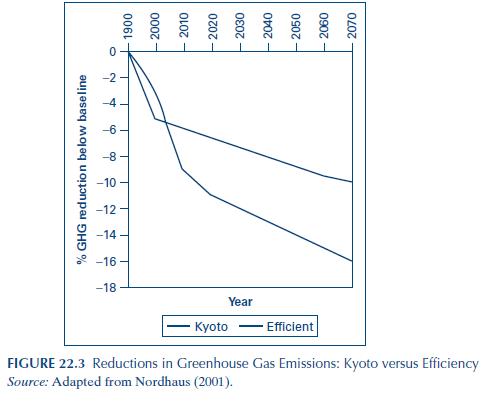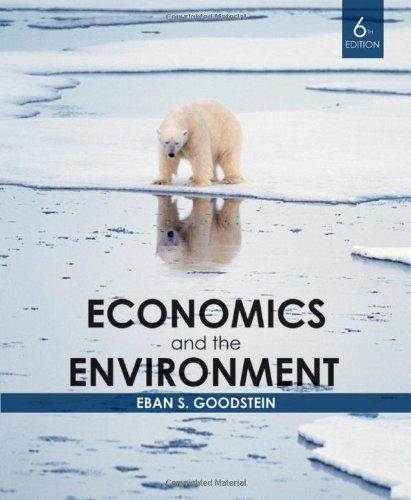2. Nordhaus is generally an efficiency advocate. And yet, following the presentation of the results in Figure
Question:
2. Nordhaus is generally an efficiency advocate. And yet, following the presentation of the results in Figure 22.3, he concluded: ‘‘There is little appreciation of the importance of ‘institutional innovations’ of this kind, and even less appreciation for the fact that there are no mechanisms for dealing with economic global public goods like global warming. For this reason, the Kyoto-Bonn Accord may be a useful if expensive guinea pig.
Operating the Kyoto-Bonn mechanism will provide valuable insights on how complicated international environmental programs will work. It is hard to see why the United States should not join with other countries in paying for this knowledge.’’

What does the ‘‘global public good’’ nature of global warming help explain? Yale economist William Nordhaus has done a lot of work on benefit–cost analysis of theKyoto treaty. Bearing inmind the vast uncertainties associated with estimating both the costs and the benefits of the the Kyoto emission reductions, consider his results in Figure 22.3. By 2070, relative to a business-as-usual increase in CO2 emissions, the original Kyoto Protocol would have led to global emission cuts of 15%, and the efficient policy would lead to cuts of about 10%.
Step by Step Answer:







